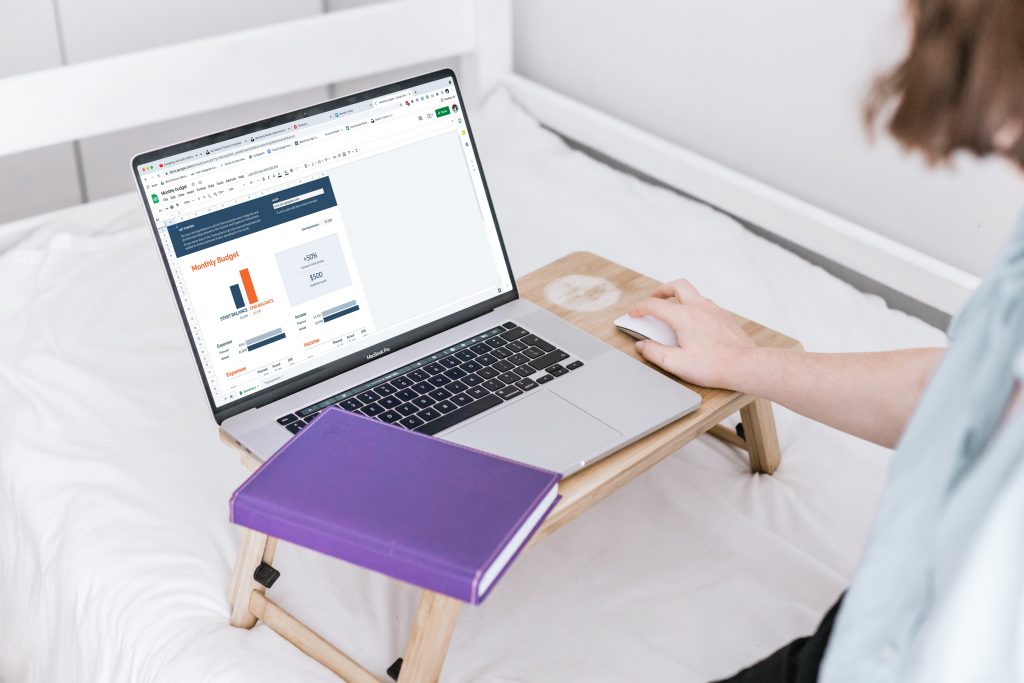This post contains affiliate links. Click here to read my affiliate policy.
Last Updated on January 17, 2023
When you hear the word mindfulness, what comes to mind? Mindfulness is the practice of focusing on the now, appreciating each moment to the fullest. So, when it comes to putting money and mindfulness together, the picture might be a little hazy. However, it doesn’t need to be that way. Even though it might sound strange, it’s possible to use this mindfulness to manage your money. Here’s how to do it.

Financial Planning Can Bring You Peace
Think about the last time you felt stressed over your money. You probably felt like you had a knot in your stomach, anxious, and not sure how things were going to work out. You probably also looked for ways to cut corners, so you could save more money and pay off your debt. But once you found a solution, how did you feel? If you’re like most people, you probably felt overwhelming relief and were at peace.
The thing is, when you learn how to map out your finances while still staying in the moment, you’re more at peace. Even though the issue is still present, you focus on finding a solution, not wondering about all the potential unknowns. It allows you to look at all the possible solutions, such as researching online for ways to lower insurance costs or refinance student loans. Utilizing Marketplace by Navient is a place where you can compare rates from different insurance companies and even look into student loan refinancing.
Make it a Habit
Once you learn a few personal finance tips for getting your finances in order, you need to practice being mindful every day. Keep track of how much money you’re spending on must-haves and how much you spend on not-so-necessary items. Once you get into the habit of tracking your spending, you’ll be more inclined not to make purchases on a whim.
Open Your Mind to Save More
Even with the best intentions, it’s easy to overspend. That’s why you need to be open to finding new ways to save and grow your money. In addition to a traditional savings account, you could look to retirement accounts that grow with you. What’s more, you can also swap out your current credit cards for ones that offer more money back and points towards travel, dining out and shopping at your favorite stores.
Don’t Let Stress Be in Charge
When you’re stressed, your emotions may be running on overdrive. You may be short-tempered, grumpy, and might even feel stuck. Being mindful allows you to step outside these negative feelings, even though they’re still present, and focus on the positives around you. Say you’ve been diligent when it comes to cooking more at home and not buying the first thing you see.
Without warning, you find out that you forgot to pay your credit card and now feel like everything you’ve accomplished is for nothing. Instead of thinking that you now must start all over, or that the situation is hopeless, and you’ll have to pay late fees, think about how you can fix the problem. You can call your credit card company and ask for them to remove the fee. In most cases, they’ll be more than happy to work with you if you usually pay on time.
See the Bigger Picture
When you’re short on money, it feels like a hurdle you can’t jump over. You might even feel resentful that you can’t make any real progress, even with all the sacrifices you’re currently making. To make your money work for you, you need to see it as a tool. It’s something you use to get by and support yourself. Money is not, nor will ever be, a source of happiness. It can make obtaining peace and tranquility easier, but that’s all it does. People who form emotional attachments to money make it ten times harder on themselves getting where they need to go.
Create a Budget
It’s astounding how much stress can be avoided by creating an in-depth budget. Sure, writing down every one of your finances is a responsibility in its own right, but it gives you all the information you need. In fact, it’s how you can start analyzing where you cut corners. Getting rid of expenses you no longer need, or use is a fantastic way to give yourself peace of mind.

